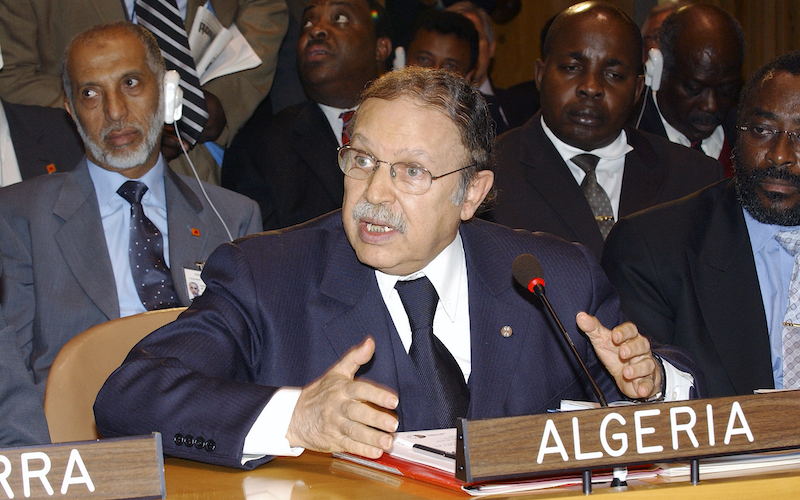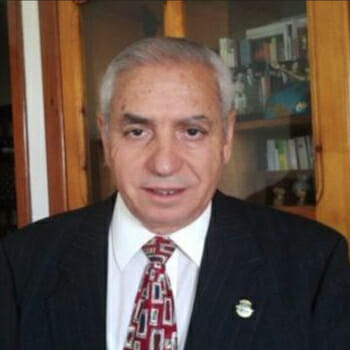
Can Algeria be Saved?
Since President Bouteflika suffered his first heart attack and was hurriedly transported to a French hospital for medical care in total secrecy, various powerful groups have been secretly vying for the favors of the powerful military for the position of president but to no avail. However, this nimble statesman, though weakened by illness and obliged to use a wheelchair for mobility and Skype for mass communication, seems to, still, hold power and enjoy the confidence of the powerful military.
In opaque Algeria this is reminiscent of its long-time ally and patron Russia when opponents feel that the end of the regime is at hand.
Algeria’s economy depends almost entirely on earnings from oil revenues and like many oil-producing countries in the region, has set up a huge rentier state that serves as a means of buying social peace disguised as a so-called policy of even distribution of wealth, but aims in the end at perpetuating the absolutist regime which is tightly controlled by the omnipresent and powerful army.
In this peculiar set-up, half of the oil revenues go to secret Swiss bank accounts owned by the top brass of the military, who consider themselves the sole and legitimate inheritors of Algerian independence. All in all, they are ready to use force, if necessary, to safeguard their material benefits prior to independence to keep power, even by using brutal tactics like “revolutionary violence.”
As oil prices are dwindling, Algeria will soon face some difficult choices. Initially, it will probably make use of the sovereign fund to maintain the social status quo, but once this is depleted, it will have no other alternative but to opt out for hard choices of realpolitik: cut the subsidies and this has already begun in some areas.
This perilous act was preceded, in the last year or so, by putting stringent conditions on car-importing which led to diplomatic outcries from European country’s like Germany, whose manufactured vehicles were denied entry to the Algerian market.
In Algeria, everything is subsidized by the state from medicine to housing, and attempting to cut these subsidies will amount to political suicide because the rank and file will argue that the military are denying them their birthright while they indulge themselves unashamedly.
As they will start feeling the pinch of economic reality, the Algerians will take to the streets to denounce their government’s policy. Initially, this will lead to scuffles with the police force, but, with time, it will lead to uprisings as more localities join the fray.
If the Arab Spring did not occur in Algeria it is because people vividly remembered the atrocities of the civil war and wanted to spare their country another blood-spilling episode. Now the situation is different. It is about survival. If Algerians are denied subsidies, then they will opt for all-out democracy, instead.
At this point, the future of Algeria is grim and uncertain. There is an urgent need for immediate and radical change in politics and the economy to avoid future uprisings and upheaval. It is a well-known fact that bread comes before democracy, but, if the establishment cannot provide free bread, Algerians will support democracy, for good, no matter what the price!
